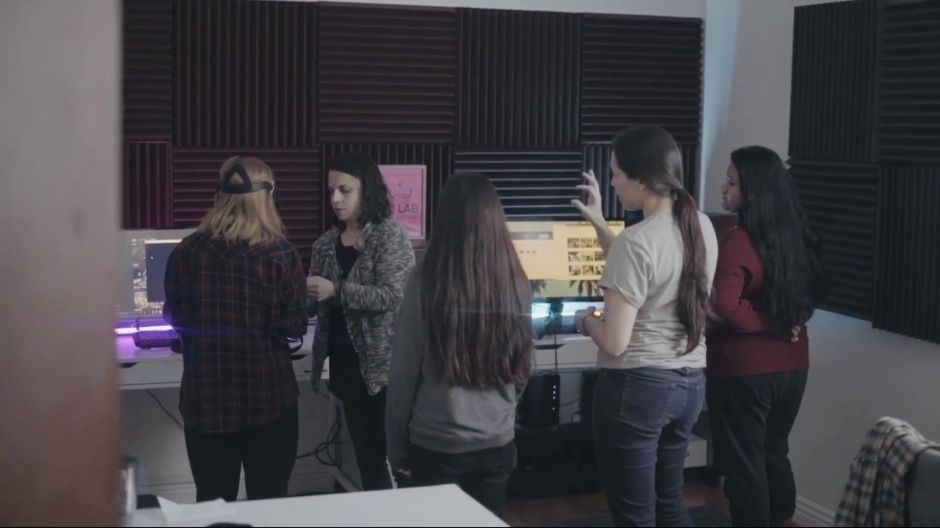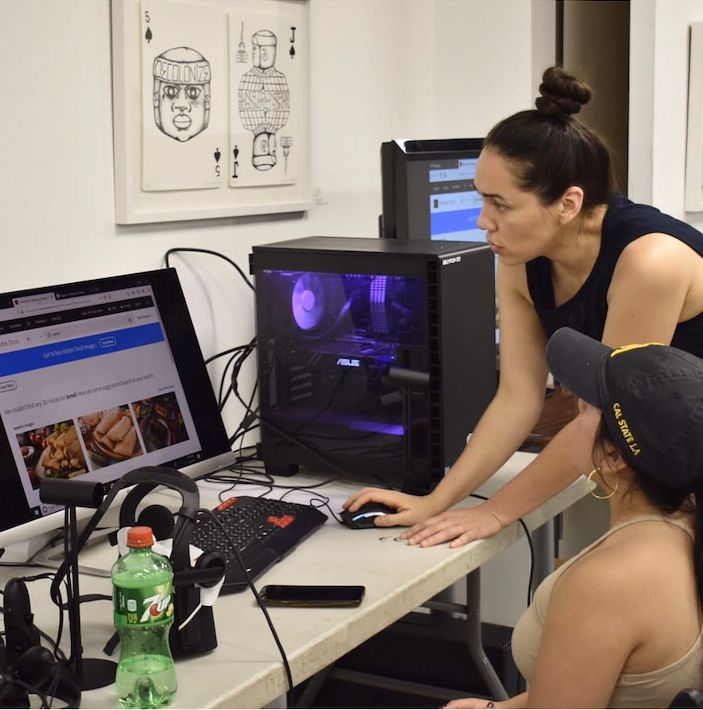Migration forces you not to be afraid of change and fight for your ideals; today he teaches low-income youth in this emerging technology
Martha Mendizábal's parents met in the United States, where she was born. When he turned 2, his father was diagnosed with testicular cancer and was evicted; however, he received the option of receiving an alternative medication that he immediately accepted.
This caused the family to run out of savings and lose their home in California, forcing them to settle in Ecuador.
"We become economic migrants," said the 40-year-old businesswoman. "I didn't speak Spanish when we got there."
The hardness of living in a country with low resources forced the family to emigrate again. This time to Durango, Mexico, home state of Mendizábal's mother.
“There I experienced the most difficult. There was no water, we had to go to carry it with buckets, ”he recalled.
When he turned 13, the family moved to another Mexican state, Tijuana was chosen. It was at that time that his father was diagnosed with kidney cancer.
The severity of their illness forced them to separation. While Mendizábal and his father moved to Orlando, Florida, his mother and brother stayed in Mexico.
The girl, then, understood little about immigration status and although she and her father were US citizens, her mother and older brother were
undocumented
“For me, emigrating was something very normal. We always found it difficult for some reason to stay in the same place, ”he acknowledged.

Knowing a new world
Mendizábal said the first time he saw a computer, without the Internet, was while studying high school in Tijuana.
Once established in Florida, the teenager saw them again more often. At that time, little would imagine that his future would be in the field of technology.
Two years after living in Florida, his father passed away and the young woman, who had already graduated from high school – at age 16 – enrolled at the University of California Los Angeles (UCLA).
He earned a degree in Latin American studies and entered law school at UC Hastings.
During this time, she worked in up to three jobs to demonstrate to the immigration service that she did have the means to sponsor her mother as a permanent resident. When the girl was 23 years old, she managed to bring her mother legally.
In the stock market
In 2010 Mendizábal moved to New York to work on bonds and as "Options Broker", a derivative of the stock market.
While in that world of numbers, he realized that technology and computers rose in fame and price and that in addition, they would become an essential acquisition for the future.
"There I realize that there is a revolution to change," he said.
This motivated her to want to learn more to offer this access to the neediest youth. It was no longer something unattainable as she saw it when she was little.
With this idea TecnoLatinx was born, a social company dedicated to instruct in emerging technology such as virtual reality (VR) and augmented reality (AR).
For 2017 Mendizábal and her partner, Nadia Y. Muñoz – who is also a lawyer – decided to venture into Silicon Valley.
"We began to show that our project was not only for social justice but also economic justice … The challenge is to see how we raise Latinos," he said.
Attend and never give up
Mendizábal and Muñoz remember that when they began to venture into technology they were willing to attend seminars regardless of cost. However, seeing them, the organizers themselves "invited" them to go offering them their money back.
The Oculus company — specializing in virtual reality hardware and software products — was acquired by Facebook in 2014 and the (VR) program is commercially released in 2016.
"Very few people globally knew about this," Mendizábal said. “It didn't make sense to me that they didn't want to admit a group of people because we're not experts because there were no experts. Then I said, ‘No. I'm not leaving because you don't even know why you're in this same class where I am ’and I wasn't leaving.”
So both Latin women lawyers and beginners in VR and AR technology stayed to continue learning. Both accepted that it was very difficult but they overcame it.
“For me, having been to law school, working on Wall Street proved to be strong in hostile places,” said Mendizábal. “The hard work to start from scratch I already knew as a child. I tell my students that sometimes a disadvantage can be an advantage. ”
With this experience they created the social company TecnoLatinx which teaches VR and AR workshops, considered emerging technology, to low-income communities mainly in the east and center of Los Angeles.
"Everything is to create, not so much to consume," explained Mendizábal.
For example, if a person wants to preserve a memory like a cup or a clock that he brought from his country from years ago, the image is added to a virtual reality or augmented reality project by converting it into a type of photo album of the future.
To this is added art that can later be saved in a general gallery.
If they are multiple images, you can take a virtual tour with photographic images and art.
"We can do as cultural preservation, family preservation," said Mendizábal. "So it's a way to raise funds because they hire us and people can later show it to their friends."
TecnoLatinx XR Lab has the mission of educating and inspiring a community of explorers and creators who leverage VR and AR as a powerful means of telling stories.
The co-founders say they can teach both high school and high school kids to train them in this emerging technology and create original and preservation jobs in VR and AR technology.
Those interested in learning more about TecnoLatinx's work can visit https://tecnolatinx.com/ or send an email to info@tecnolatinx.com








